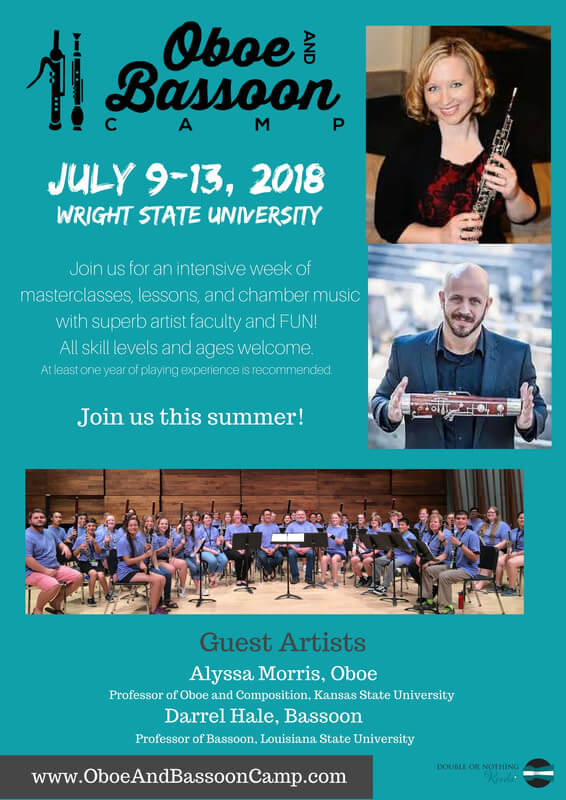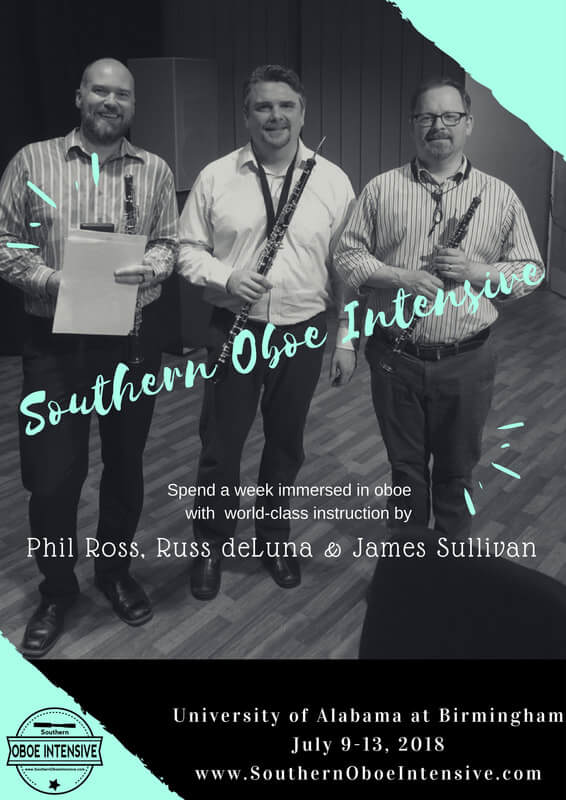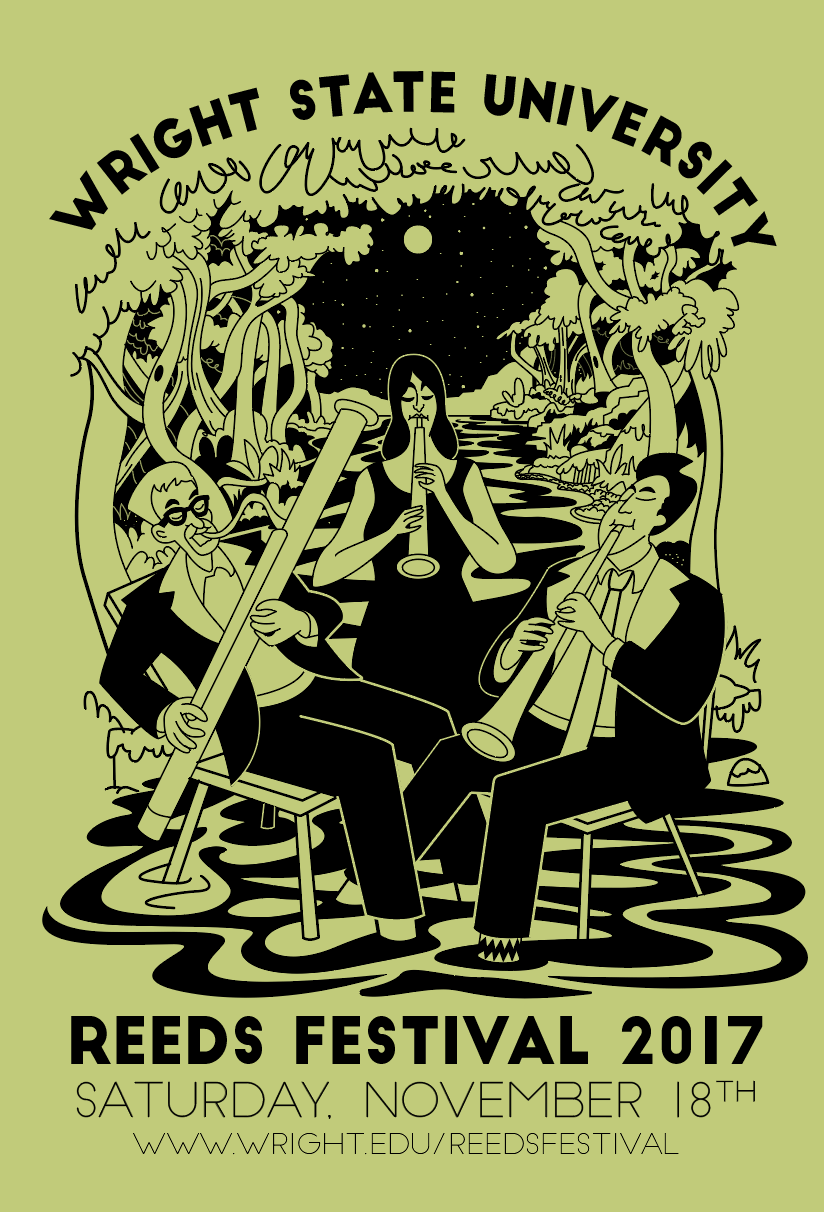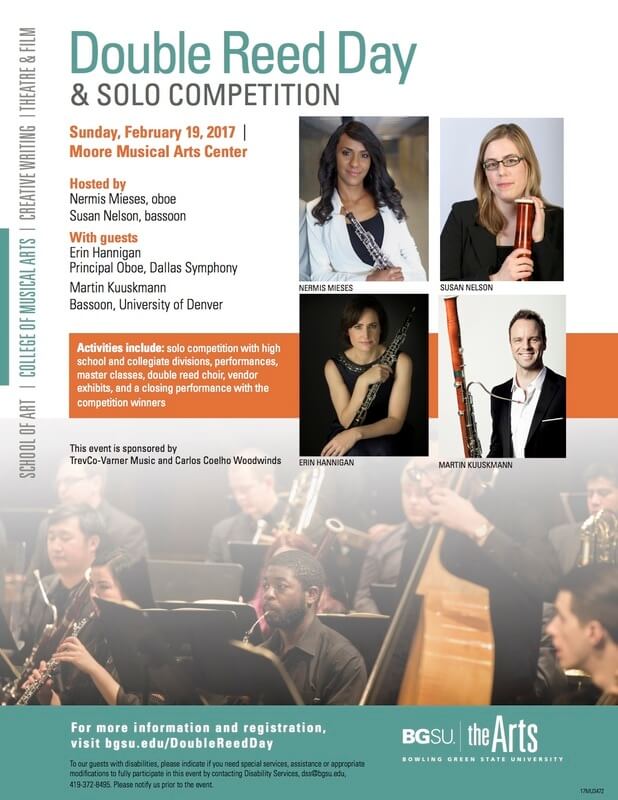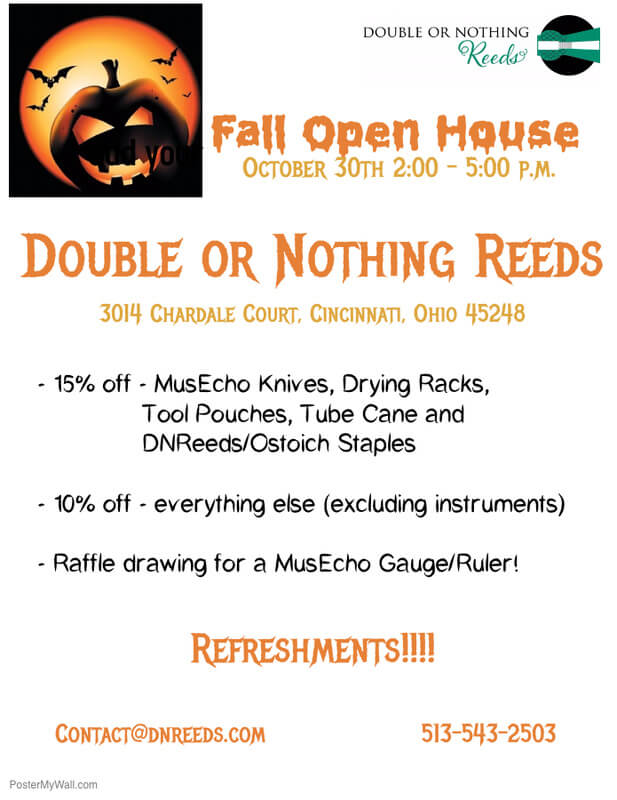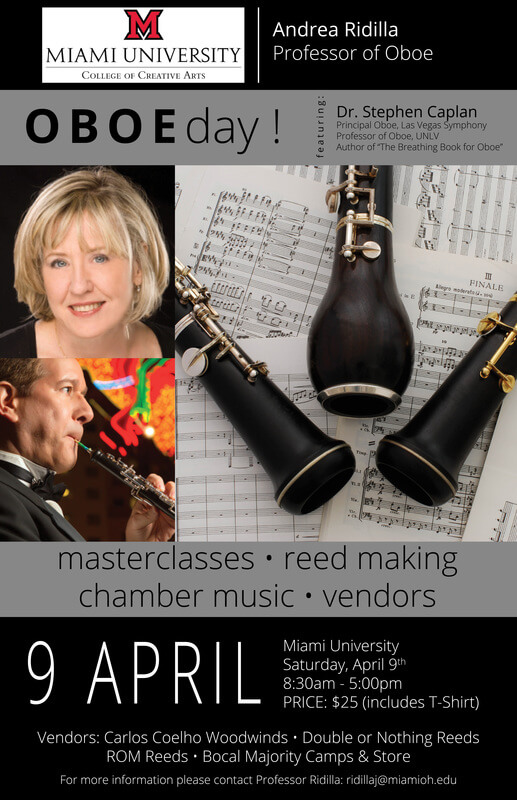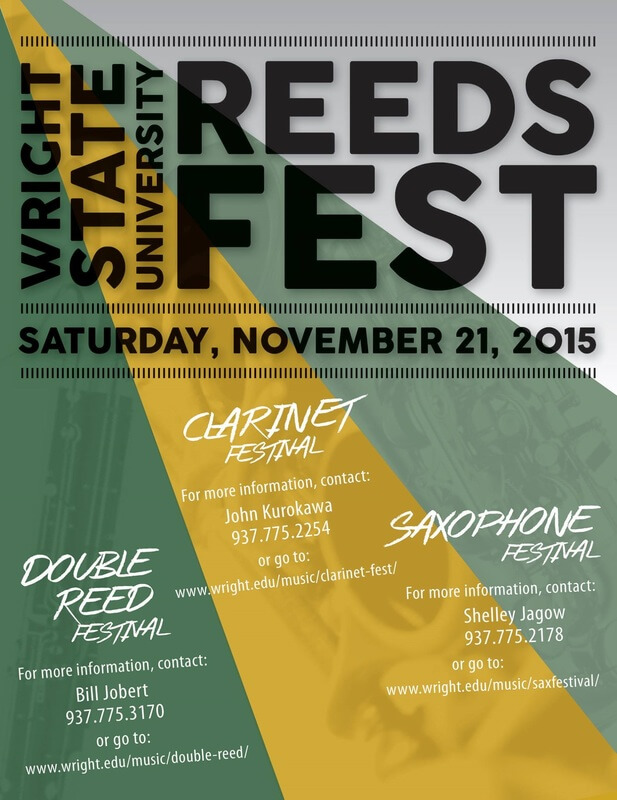Double or Nothing Reeds Blog: Oboe News, Resources & Events
The Oboe & bassoon camp
Southern oboe intensive!!!!
Wright STATE UNIVERSITY REEDS FESTIVAL
An Oboist abroad
Applying for a Fulbright is not for the faint of heart. The multi-step process is grueling, and, for a musician, includes submitting professional recordings, numerous recommendations, a detailed project proposal, and a lengthy application. If you make it through the paperwork, an on-campus interview is scheduled. Finally, the Fulbright committee evaluates the candidate’s application package. Precious few are selected to participate in the Fulbright program, but if chosen, it can be the experience of a lifetime.
CCM graduate student and oboist Abby Yeakle is fortunate. Her dedication, artistry, and scholarly aptitude landed her a Fulbright Award to study the Viennese oboe in Austria, where she currently resides and studies.
Despite her rigorous schedule, Abby was generous to offer DNR an interview about her Fulbright experience thus far, and an inside look at her daily activities.
DNR: Congratulations on your Fulbright! What a remarkable accomplishment. Can you tell us a little bit about your research and how you came to your topic?
AYH: Years ago, I was in a lesson playing a Telemann Fantastie when my teacher stopped me to ask about my articulation choice. It was then explained to me that slurring that interval would have been risky to near impossible on the Baroque oboe. Having never played the Baroque oboe, I had no idea. Nevertheless, I was able to benefit from my teacher’s experiences and learn more about an authentic articulation choice. I’ve known a number of oboists that have spent time with the Baroque in order to better understand the repertoire. I began to think to myself, “Why has no one done this with the Viennese oboe and the Classical/Romantic Repertoire?” it is, after all, the period instrument so to speak.
Vienna, Austria is the only place left in the world playing the Viennese oboe. The Viennese have proudly preserved their oboe out of tradition. This means that I could step straight into an interactive exhibition of living oboe history for my research. I don’t need a replica of the instrument and I don’t need to consult and interpret a treatise. I could have access to an ongoing tradition.
I am in Vienna, Austria for this school year learning to play the Viennese oboe, which has many fingerings are different due to a different bore design. In doing so I will be able to experience the repertoire from the late classical/early romantic on its intended instrument. I will cross-apply this knowledge back to my French conservatory oboe for better maintenance of performance practices.
DNR: What inspired your decision to pursue a Fulbright Scholarship?
AYH: I was reading the flute teacher’s bio at one of my summer music festivals, and noticed that it said she was a Fulbright Scholar. I remember thinking it sounded so important, so I asked her about it. I thought it was incredible that she accomplished something in her 20’s that was still of notable value to her career over an additional 20 years later. I had also always wanted to study abroad, and this sounded like a great way to do it.
DNR: Fulbright grants are limited, and the competition is rigorous. What was the application process like for you?
AYH: The Fulbright application process is extremely time-consuming. However, don’t let that deter you if you’re interested. I’ve actually applied for a Fulbright more than once, so you’re talking to the expert! I spent about 2 months working on my first application, and it felt a little rushed with everything that had to be done. For my second application I spent about 5 months on the application.
The application components include the typical things you’d expect such as: The Grant Proposal (2 page max), a Personal Statement (1 page), 3 Letters of Recommendation, Transcripts, and Biographical Data. The not so usual components include: your Foreign Language Evaluation (if you’re applying to a non-English speaking country), and at least one Letter of Affiliation. The Letter of Affiliation is crucial, it is typically written by whomever you are proposing to study with in that country, or someone from the country who will be involved in your research in some way. Their letter should almost read as a sort of Letter of Recommendation in itself; a sort of “I would love to host and teach [name], and will help him/her in their research in any way I can.” It can be difficult to get such a letter from someone from overseas, especially if they’re unfamiliar with the Fulbright or what you’re trying to do.
The final application component is your collection of video recordings uploaded via decision desk. Yes- video. Audio alone is not sufficient. This is obviously an extra step required of performers and artists that people from other academic areas don’t have to fuss with. Fulbright outlines repertoire requirements that your videos should fit.
DNR: We have enjoyed seeing your Facebook posts of Vienna! What are you enjoying most about Austria?
AYH: My favorite thing about Vienna so far has got to be the classical music scene. Your everyday person on the street is so much more cultured than in the U.S., and they have a high respect for classical musicians. I love going to the Musikverein to see the Vienna Philharmonic, but I’ve got to admit that the Vienna State Opera is my favorite. As with many buildings in Vienna, the architecture of the State Opera is grand and historic. I love being in the building and walking up the main staircase before the show and during intermission.
Because tickets are so expensive, I purchase a standing room ticket for 4 euro. This means that I wait in line for 3 hours before the show, to then stand through an opera. So far the longest show that I’ve stood through was Wagner’s Lohengrin, which is about 5 hours. I go to at least two shows a week, and I’m really enjoying growing my opera knowledge.
DNR: Have you had/Will you have the opportunity to travel outside of Austria during your tenure? Where do you hope to visit and why?
AYH: Yes! Since Fulbright has brought me to Europe, I’ve made a point to visit other places. I’ve also been fortunate enough to visit these places with my Husband, James, who is here with me for about half of my Fulbright Grant Period. Together, we visited Paris, France and Nuremberg, Munich, and Rotenburg ob der Tauber in Germany. I will go to Berlin, Germany to present at the Fulbright International Conference in March. In May and June James and I are looking forward to going to London, England and Rome, Italy. There aren’t any deep reasons for wanting to go to these places, just a general interest in history and landmarks, and a desire to travel and see the world.
DNR: I understand that there is a German language prerequisite for the program. Are your classes/studies conducted in German? If so, how are you adjusting to studies in another language?
AYH: I have a different scenario than most, as my project is performance and culture based. This is to say, that I am not taking any academic music courses. The only classes that I’m taking are Oboe Lessons, Chamber Music, and Orchestra. My Oboe lessons are in English, but mainly because being one-on-one allows for that luxury, and my teacher is bilingual. My Chamber Music group and Orchestra rehearsals are run in German.
I will admit to you that it’s tricky for me! I don’t always catch everything, but I’m improving all the time. The best thing about sitting in a rehearsal being run in a foreign language, is that I have to truly prepare and know my music, because all my focus is on understanding the rehearsal instructions.
DNR: Describe a typical day in the life of Abby Yeakle, Fulbright Scholar.
AYH: My typical day here is pretty low-key. My main priority is simply finding the time to practice both oboes. This isn’t a problem, because I have plenty of time, but it is, however, a balancing act. I want to become proficient on the Viennese, but I don’t want to neglect my French oboe.
I have two 45-minute oboe lessons per week. One of them is alone with my teacher, and for the other one my pianist joins. It’s pretty typical here to arrive to your lesson early or stay late in order to hear a little bit of your peer’s lessons. This was a big adjustment for me, as I’m used to waiting my turn out in the hallway. I go to school once a week to rehearse with my quintet. Orchestra only meets the week leading up to the concert. There are usually 2 or 3 concerts per semester, and you might only be assigned to one of them.
Outside of music, I’m doing everyday things such as: taking public transportation, not being able to find what I’m looking for at the grocery store, trying to use my German (because almost everyone here can speak English), going to coffee houses, taking pictures of everything, making new friends. I don’t really care for the food here, and Austrian’s aren’t really known for their cuisine. However, these people love their bread and so do I!
DNR: What are your career goals post-Fulbright?
AYH: I’ve always been passionate about teaching the oboe, and so I am pursuing university teaching positions. If I could find performing opportunities on the side, I would happily pursue them in addition to teaching. I believe that it’s important to practice what you preach, and keep your own musicianship skills sharp.
DNR: What advice would you give to other young artists and musicians applying for the Fulbright?
AYH: Before you even begin the application, you need to have an idea for your Fulbright Project. You should propose study or research, which you could only be able to carry out in that particular city or country. Furthermore Fulbright loves to fund projects that benefit more than just the individual they send, but rather your entire academic community. This is to say that a proposal to go study with some world-class oboe player for your own personal benefit would not fare so well. There are world-class oboists in the U.S. as well, and no one else benefits from your private lessons.
Try to think of somewhere you can go or someone you can study with where there is an indisputable reason for needing to go there or to study with that person. Maybe that’s the city where that composer’s archives are, or maybe that teacher wrote a compelling oboe method book. In my case for example, the Viennese oboe and its performers and teachers are only in Vienna, so this built a strong case for me. On top of that, you need to explain how others will benefit from your study or research. Will you publish an article? Will you tour a lecture recital?
Lastly, one of Fulbright’s core mission beliefs is cultural exchange. After making it clear to Fulbright why you would benefit from going there, you need to explain why they will also benefit from having you. (Special Hint: if your Affiliate can also express this in their Letter of Affiliation, it’s a HUGE help). Will you present at a conference? Will you teach them about the American long-scrape reed? What part of American culture will you bring to them in exchange? For me, I am making a point to perform American oboe repertoire on both of my studio recitals here, as well as a recital of all-American repertoire at the U.S. Embassy. Additionally, I am writing articles for the Viennese Oboe Journal to share my perspective as an American oboe player.
Want to know more about Abby? Click here.
Interested in pursuing a Fulbright Scholarship? You can find more information here.
CCM graduate student and oboist Abby Yeakle is fortunate. Her dedication, artistry, and scholarly aptitude landed her a Fulbright Award to study the Viennese oboe in Austria, where she currently resides and studies.
Despite her rigorous schedule, Abby was generous to offer DNR an interview about her Fulbright experience thus far, and an inside look at her daily activities.
DNR: Congratulations on your Fulbright! What a remarkable accomplishment. Can you tell us a little bit about your research and how you came to your topic?
AYH: Years ago, I was in a lesson playing a Telemann Fantastie when my teacher stopped me to ask about my articulation choice. It was then explained to me that slurring that interval would have been risky to near impossible on the Baroque oboe. Having never played the Baroque oboe, I had no idea. Nevertheless, I was able to benefit from my teacher’s experiences and learn more about an authentic articulation choice. I’ve known a number of oboists that have spent time with the Baroque in order to better understand the repertoire. I began to think to myself, “Why has no one done this with the Viennese oboe and the Classical/Romantic Repertoire?” it is, after all, the period instrument so to speak.
Vienna, Austria is the only place left in the world playing the Viennese oboe. The Viennese have proudly preserved their oboe out of tradition. This means that I could step straight into an interactive exhibition of living oboe history for my research. I don’t need a replica of the instrument and I don’t need to consult and interpret a treatise. I could have access to an ongoing tradition.
I am in Vienna, Austria for this school year learning to play the Viennese oboe, which has many fingerings are different due to a different bore design. In doing so I will be able to experience the repertoire from the late classical/early romantic on its intended instrument. I will cross-apply this knowledge back to my French conservatory oboe for better maintenance of performance practices.
DNR: What inspired your decision to pursue a Fulbright Scholarship?
AYH: I was reading the flute teacher’s bio at one of my summer music festivals, and noticed that it said she was a Fulbright Scholar. I remember thinking it sounded so important, so I asked her about it. I thought it was incredible that she accomplished something in her 20’s that was still of notable value to her career over an additional 20 years later. I had also always wanted to study abroad, and this sounded like a great way to do it.
DNR: Fulbright grants are limited, and the competition is rigorous. What was the application process like for you?
AYH: The Fulbright application process is extremely time-consuming. However, don’t let that deter you if you’re interested. I’ve actually applied for a Fulbright more than once, so you’re talking to the expert! I spent about 2 months working on my first application, and it felt a little rushed with everything that had to be done. For my second application I spent about 5 months on the application.
The application components include the typical things you’d expect such as: The Grant Proposal (2 page max), a Personal Statement (1 page), 3 Letters of Recommendation, Transcripts, and Biographical Data. The not so usual components include: your Foreign Language Evaluation (if you’re applying to a non-English speaking country), and at least one Letter of Affiliation. The Letter of Affiliation is crucial, it is typically written by whomever you are proposing to study with in that country, or someone from the country who will be involved in your research in some way. Their letter should almost read as a sort of Letter of Recommendation in itself; a sort of “I would love to host and teach [name], and will help him/her in their research in any way I can.” It can be difficult to get such a letter from someone from overseas, especially if they’re unfamiliar with the Fulbright or what you’re trying to do.
The final application component is your collection of video recordings uploaded via decision desk. Yes- video. Audio alone is not sufficient. This is obviously an extra step required of performers and artists that people from other academic areas don’t have to fuss with. Fulbright outlines repertoire requirements that your videos should fit.
DNR: We have enjoyed seeing your Facebook posts of Vienna! What are you enjoying most about Austria?
AYH: My favorite thing about Vienna so far has got to be the classical music scene. Your everyday person on the street is so much more cultured than in the U.S., and they have a high respect for classical musicians. I love going to the Musikverein to see the Vienna Philharmonic, but I’ve got to admit that the Vienna State Opera is my favorite. As with many buildings in Vienna, the architecture of the State Opera is grand and historic. I love being in the building and walking up the main staircase before the show and during intermission.
Because tickets are so expensive, I purchase a standing room ticket for 4 euro. This means that I wait in line for 3 hours before the show, to then stand through an opera. So far the longest show that I’ve stood through was Wagner’s Lohengrin, which is about 5 hours. I go to at least two shows a week, and I’m really enjoying growing my opera knowledge.
DNR: Have you had/Will you have the opportunity to travel outside of Austria during your tenure? Where do you hope to visit and why?
AYH: Yes! Since Fulbright has brought me to Europe, I’ve made a point to visit other places. I’ve also been fortunate enough to visit these places with my Husband, James, who is here with me for about half of my Fulbright Grant Period. Together, we visited Paris, France and Nuremberg, Munich, and Rotenburg ob der Tauber in Germany. I will go to Berlin, Germany to present at the Fulbright International Conference in March. In May and June James and I are looking forward to going to London, England and Rome, Italy. There aren’t any deep reasons for wanting to go to these places, just a general interest in history and landmarks, and a desire to travel and see the world.
DNR: I understand that there is a German language prerequisite for the program. Are your classes/studies conducted in German? If so, how are you adjusting to studies in another language?
AYH: I have a different scenario than most, as my project is performance and culture based. This is to say, that I am not taking any academic music courses. The only classes that I’m taking are Oboe Lessons, Chamber Music, and Orchestra. My Oboe lessons are in English, but mainly because being one-on-one allows for that luxury, and my teacher is bilingual. My Chamber Music group and Orchestra rehearsals are run in German.
I will admit to you that it’s tricky for me! I don’t always catch everything, but I’m improving all the time. The best thing about sitting in a rehearsal being run in a foreign language, is that I have to truly prepare and know my music, because all my focus is on understanding the rehearsal instructions.
DNR: Describe a typical day in the life of Abby Yeakle, Fulbright Scholar.
AYH: My typical day here is pretty low-key. My main priority is simply finding the time to practice both oboes. This isn’t a problem, because I have plenty of time, but it is, however, a balancing act. I want to become proficient on the Viennese, but I don’t want to neglect my French oboe.
I have two 45-minute oboe lessons per week. One of them is alone with my teacher, and for the other one my pianist joins. It’s pretty typical here to arrive to your lesson early or stay late in order to hear a little bit of your peer’s lessons. This was a big adjustment for me, as I’m used to waiting my turn out in the hallway. I go to school once a week to rehearse with my quintet. Orchestra only meets the week leading up to the concert. There are usually 2 or 3 concerts per semester, and you might only be assigned to one of them.
Outside of music, I’m doing everyday things such as: taking public transportation, not being able to find what I’m looking for at the grocery store, trying to use my German (because almost everyone here can speak English), going to coffee houses, taking pictures of everything, making new friends. I don’t really care for the food here, and Austrian’s aren’t really known for their cuisine. However, these people love their bread and so do I!
DNR: What are your career goals post-Fulbright?
AYH: I’ve always been passionate about teaching the oboe, and so I am pursuing university teaching positions. If I could find performing opportunities on the side, I would happily pursue them in addition to teaching. I believe that it’s important to practice what you preach, and keep your own musicianship skills sharp.
DNR: What advice would you give to other young artists and musicians applying for the Fulbright?
AYH: Before you even begin the application, you need to have an idea for your Fulbright Project. You should propose study or research, which you could only be able to carry out in that particular city or country. Furthermore Fulbright loves to fund projects that benefit more than just the individual they send, but rather your entire academic community. This is to say that a proposal to go study with some world-class oboe player for your own personal benefit would not fare so well. There are world-class oboists in the U.S. as well, and no one else benefits from your private lessons.
Try to think of somewhere you can go or someone you can study with where there is an indisputable reason for needing to go there or to study with that person. Maybe that’s the city where that composer’s archives are, or maybe that teacher wrote a compelling oboe method book. In my case for example, the Viennese oboe and its performers and teachers are only in Vienna, so this built a strong case for me. On top of that, you need to explain how others will benefit from your study or research. Will you publish an article? Will you tour a lecture recital?
Lastly, one of Fulbright’s core mission beliefs is cultural exchange. After making it clear to Fulbright why you would benefit from going there, you need to explain why they will also benefit from having you. (Special Hint: if your Affiliate can also express this in their Letter of Affiliation, it’s a HUGE help). Will you present at a conference? Will you teach them about the American long-scrape reed? What part of American culture will you bring to them in exchange? For me, I am making a point to perform American oboe repertoire on both of my studio recitals here, as well as a recital of all-American repertoire at the U.S. Embassy. Additionally, I am writing articles for the Viennese Oboe Journal to share my perspective as an American oboe player.
Want to know more about Abby? Click here.
Interested in pursuing a Fulbright Scholarship? You can find more information here.

